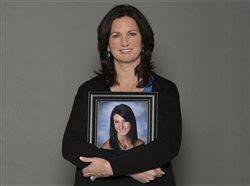
Taking parents back to school to learn about MenB
(BPT) – For parents, sending teens and young adults back to school can be an extremely busy time. Amidst all the back to school season planning and shopping for new clothes and school supplies, health care can sometimes be overlooked. The back to school season is an opportune time for your teen or young adult to get their annual checkup and any recommended vaccines, including those to help protect against meningococcal disease.
Meningococcal disease, often referred to as meningitis, is a bacterial infection that can cause inflammation of the protective membranes covering the brain and spinal cord. The bacteria can also enter the bloodstream and multiply, causing serious blood infections. There are five common groups of bacteria that cause the disease in the U.S. – A, B, C, W and Y.
“Meningococcal group B disease, also known as MenB, accounts for nearly 50 percent of all U.S. cases of meningococcal disease in 17 to 23 year olds,” said Dr. Richard Chung, Director of Adolescent Medicine at Duke University. “However, a recent national survey revealed that parents of teens and young adults ages 16 to 23 may be unaware of some important information about this uncommon, but potentially serious disease.”
The National Meningococcal Disease Awareness Survey, which was conducted by Harris Poll on behalf of Pfizer in partnership with The Kimberly Coffey Foundation, evaluated parents’ knowledge of meningococcal disease and available vaccines. After learning about the differences between the two types of meningococcal vaccines (MCV4 and MenB), nearly 4 in 5 parents (79 percent) did not know that their child wasn’t fully immunized against all five common groups of meningococcal disease – A, B, C, W and Y – unless their child had both types of meningococcal vaccines.
Patti Wukovits, Founder and Executive Director of The Kimberly Coffey Foundation, knows firsthand the potential dangers of meningococcal disease after losing her 17-year-old daughter, Kimberly Coffey, to MenB in 2012.
“I was absolutely shocked when Kimberly was diagnosed with MenB. As a mother and a nurse, I was very vigilant in having Kimberly vaccinated against meningococcal disease,” recalls Patti Wukovits. “However, I had the common misconception that my daughter was fully protected, when in fact, the meningococcal vaccine she received didn’t protect her against MenB.”
The survey also found that while parents are highly motivated to protect their children from meningococcal disease, they may be confused about the different types of the disease and available vaccines. After learning about the different meningococcal vaccines:
* 83 percent of parents surveyed said before taking the survey they did not understand the difference between group B and other groups of meningococcal disease.
* Nearly 9 out of 10 (89 percent) parents agreed that meningococcal group B is something all parents should protect their children against,5 however, less than a third (30 percent) reported that their teen or young adult received the vaccine that [helps] protect against group B.
* 70 percent of parents whose child had not received the group B vaccine said they were likely to do so in the future.
When Patti’s daughter contracted MenB in 2012, there were no vaccines available in the United States to help protect against MenB, but now there are. Parents of teens and young adults should add a visit to their child’s health care provider to their back to school checklist to learn more about MenB and available vaccines.
For more information about the survey findings and MenB, visit StopMenB.com.
Survey Methodology
The National Meningococcal Disease Awareness Survey was conducted online within the United States by Harris Poll on behalf of Pfizer in partnership with The Kimberly Coffey Foundation, from March 8-29, 2016, among a total of 2,011 U.S. parents ages 30+ with a teen or young adult between the ages of 16 and 23. For complete research method, including weighting variables and subgroup sample sizes, please contact Gary Iott, Corporate Affairs, Global Communications, Pfizer at [email protected].


